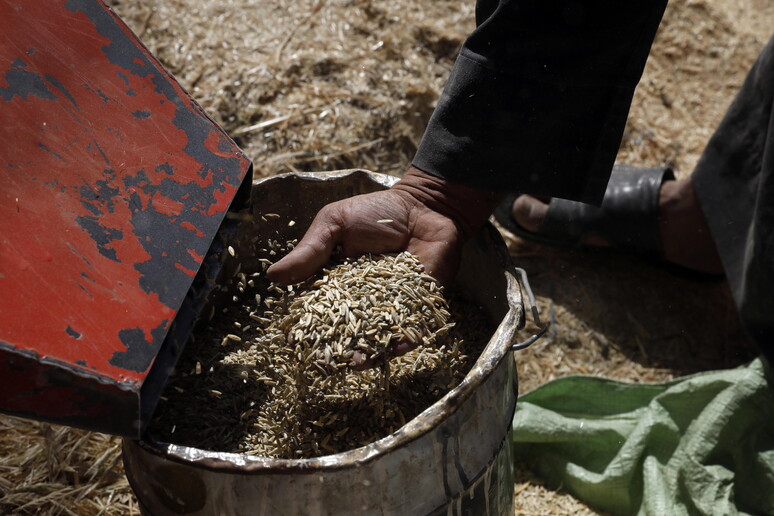Acute food insecurity is set to
potentially increase in magnitude and severity in 18 hunger
"hotspots" spread over 22 countries, according to a new UN early
warning report.
It spotlights the risk of a spill-over of the Sudan crisis and
the risk of negative impacts in the neighbouring countries and
warns that a likely El Niño climatic phenomenon is raising fears
of climate extremes in vulnerable countries around the globe.
The report by the UN Food and Agriculture Organization and the
World Food Programme (WFP) calls for urgent humanitarian action
to save lives and livelihoods and prevent starvation and death
in hotspots where acute hunger is at a high risk of worsening
from June to November 2023.
"Not only are more people in more places around the world going
hungry, but the severity of the hunger they face is worse than
ever," said Cindy McCain, WFP's Executive Director.
"This report makes it clear: we must act now to save lives, help
people adapt to a changing climate, and ultimately prevent
famine. If we don't, the results will be catastrophic."
The report - 'Hunger Hotspots - FAO-WFP early warnings on acute
food insecurity' - warns of a major risk of El Niño conditions,
which meteorologists forecast to emerge by mid-2023 with an 82%
probability.
The expected shift in climate patterns will have significant
implications for several hotspots, including below-average rains
in the Dry Corridor of Central America, and raises the spectre
of consecutive extreme climatic events hitting areas of the
Sahel and the Horn of Africa.
The spill-over from the crisis in the Sudan is driving massive
population displacement and hunger among people forced from
their homes in search of refuge and those hosting them, the
report warns.
More than one million people are expected to flee the country
while an additional 2.5 million inside the Sudan set to face
acute hunger in coming months.
The Sudan was already hosting over one million refugees, and, if
the conflict persists, hundreds of thousands are likely to
return to their counties of origin, many of which are already in
the grips of underfunded and protracted refugee crises,
compounded by social, political and economic stressors.
According to the report, Afghanistan, Nigeria, Somalia, South
Sudan and Yemen remain at the highest alert level.
Haiti, the Sahel (Burkina Faso and Mali) and the Sudan have been
elevated to the highest concern levels; this is due to severe
movement restrictions to people and goods in Burkina Faso, Haiti
and Mali, and the recent outbreak of conflict in the Sudan.
All hotspots at the highest level have communities facing or
projected to face starvation, or are at risk of sliding towards
catastrophic conditions.
The Central African Republic, the Democratic Republic of the
Congo, Ethiopia, Kenya, Pakistan and Syria are hotspots with
very high concern, and the alert has also been extended to
Myanmar.
All these hotspots have a large number of people facing critical
acute food insecurity, coupled with worsening drivers that are
expected to further intensify life‑threatening conditions in the
coming months.
Lebanon has been added to the list of hotspots, joining Malawi
and Central America (El Salvador, Guatemala, Honduras and
Nicaragua) that remain hotspots.
ALL RIGHTS RESERVED © Copyright ANSA











